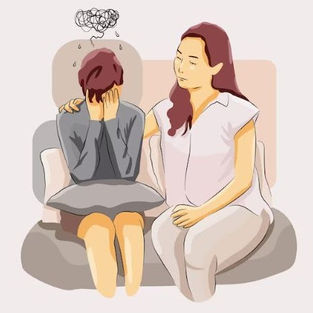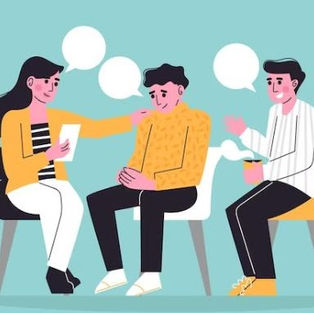Services
We provide therapy using various techniques like , EMDR, EFT, CBT, Trauma Informed Psychotherapy and an eclectic approach for individuals, couples and also family in different areas of concerns like :
Book a session today:
Benefits and Options of Therapy
Curious about whether therapy is suitable for you? You're not alone. Many individuals contemplate seeking help from a mental health professional, particularly when they are faced with a significant crisis, dealing with prolonged anxiety or depression, coping with a major life transition, navigating complicated family dynamics, experiencing problems in a relationship, managing addiction or substance abuse, or desiring to make positive changes for better mental and emotional well-being. Regardless of your reasons, therapy offers a wide range of benefits for everyone. There are four types of therapy, each with its own advantages.
Individual Therapy
Individual therapy centers around the relationship between you and your therapist, fostered through talk therapy, which is crucial for your progress. It provides a safe space for you to explore your thoughts, feelings, and concerns. Unlike couples, family, or group therapy, individual therapy concentrates solely on you, allowing for a deeper understanding of the issues and more time to develop coping strategies for handling difficult situations. The goal of individual therapy is to inspire change and improve your quality of life through self-awareness and self-exploration. Being in therapy can also enhance your communication skills, empower you, provide fresh insights about your life, help you make healthier choices, and develop coping strategies to manage distress.
Cognitive-behavioral therapy (CBT)
Cognitive-behavioral therapy (CBT) combines behavioral and cognitive therapies and is used to treat various conditions such as anxiety disorders, bipolar disorder, depression, eating disorders, substance abuse, addiction, obsessive-compulsive disorder, phobias, and post-traumatic stress disorder. In CBT, your therapist will guide the sessions with a focus on understanding the role of thinking in your emotions and actions. CBT has proven to be effective as a standalone treatment or as a supplemental therapy to medication for several mental health conditions, including anxiety disorders and depression. It has been found to reduce depression levels, decrease the severity of mania in bipolar disorder, lower the relapse rate, and enhance psychosocial functioning. CBT is consistently supported as an effective psychotherapeutic option for treating anxiety disorders.
In summary, therapy can be beneficial for various reasons, and there are different types of therapy available to address specific needs. Talk therapy, individual therapy, couples therapy, and cognitive-behavioral therapy offer unique advantages in helping individuals improve their mental and emotional well-being.
Eye Movement Desensitization & Reprocessing
EMDR is a comprehensive therapy that treats trauma and other issues: anxiety, depression, Disordered eating, addictions, OCD and more. We view your emotional, physical and somatic well being as interrelated. Using a body based technique called bilateral stimulation, we guide you towards deep healing and better coping strategies.
When trauma stores incompletely the past intrusively comes up in your present. The brain and nervous system react as if the past trauma is currently happening . EMDR helps trauma lose its charge and you can react in the present without the past interfering.
Emotionally Focused Therapy (EFT)
EFT is a compassionate, respectful and collaborative approach of psychotherapy which involves a therapist working with couples to recognise unhelpful patterns of interaction between them. The therapist then coaches the couple to develop healthierways of interacting to communicate their needs, reduce conflict, empathize with one another and maintain their connection. The founder of EFT, Dr. Sue Johnson describes a "healthy relationship" as a strong bond which offers both partners a safe haven and a secure base to grow, learn and fully engage with life."It is characterized by emotional accessibility, responsiveness and engagement.These qualities fit with the key question in relations- Are you there for me?"
Trauma Informed Psychotherapy
Trauma can have long-term effects on the person’s well-being. If symptoms persist and do not decrease in severity, it can indicate that the trauma has developed into a mental health issue and may need more help.Sometimes, a person will also experience symptoms when someone feels as though they are in a constant state of alertness. This may make it difficult to sleep.
In summary, therapy can be beneficial for various reasons, and there are different types of therapy available to address specific needs. Cognitive-Behavioral Therapy, Emotionally Focused Therapy, Trauma Informed Psychotherapy offer unique advantages in helping individuals improve their mental and emotional well-being.











